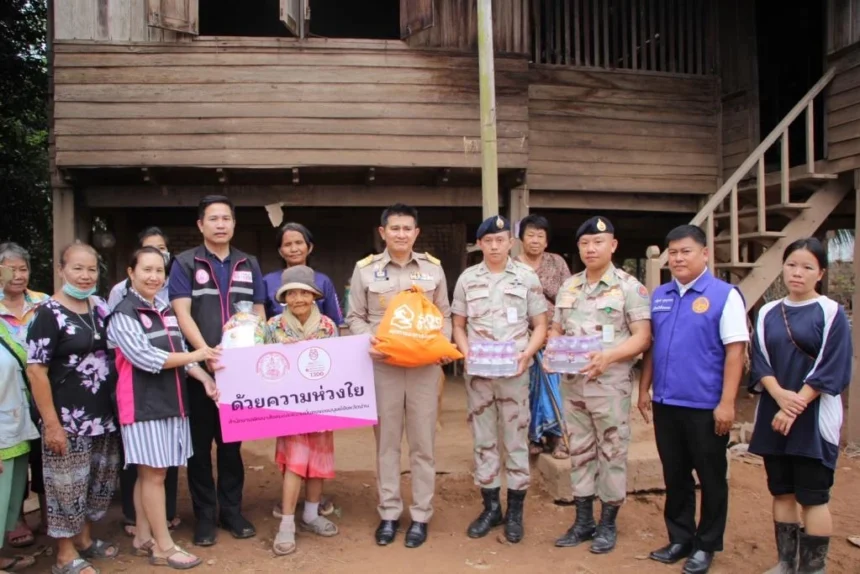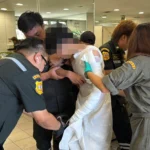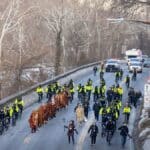NAN – Flood damage from tropical storm Wipha continues to affect Nan city. An 80-year-old woman in the Suan Tan Lang community has lost her home after the massive flood from Tropical Storm Wipha. Her house is now full of mud and debris, making it unlivable. Volunteers and local media asked the governor for help.
Tropical Storm Wipha hit Nan in late July, bringing the worst flooding the area has seen in 50 years. Although water levels have dropped, many families are still facing tough conditions and have a long road to recovery.
The Suan Tan Lang community, located next to the Nan River, was hit especially hard. Residents are spending their days cleaning mud from their homes. During a visit, local journalists and volunteers met 80-year-old Ms. Pensri Chomkham, who lived alone in her old wooden house with six abandoned dogs.

During the flood, Nan community health workers and neighbours helped Grandma Pensri evacuate to a local temple that served as a shelter. When the water receded, her two-storey wooden house was left full of mud. Everything inside, including clothes and bedding, was ruined.
The house is so damaged that it is unsafe to live in.
The situation was reported to Nan governor Chainarong Wongyai, who quickly coordinated with local officials to find ways to help. Nan Provincial and district teams began inspecting her home at the end of the week to plan next steps.

After the inspection, the Nan governor ordered district staff to help clean up the house using water trucks and workers to clear mud and garbage. They also plan to fix up the lower floor so Grandma Pensri can stay there safely, since the upper floor is badly damaged and unsafe.
Charities, along with companies like Boonthavorn and Ikea, are now working through local foundations to build a new prefabricated home for Grandma Pensri, ensuring it will be sturdy and safe.
They are also helping her register for disability support because she is hearing impaired, which will allow her to receive a monthly allowance.
As for the six dogs, the governor has asked the provincial livestock office to arrange for them to be spayed. Local volunteers will help care for them and try to find new homes for each one.














